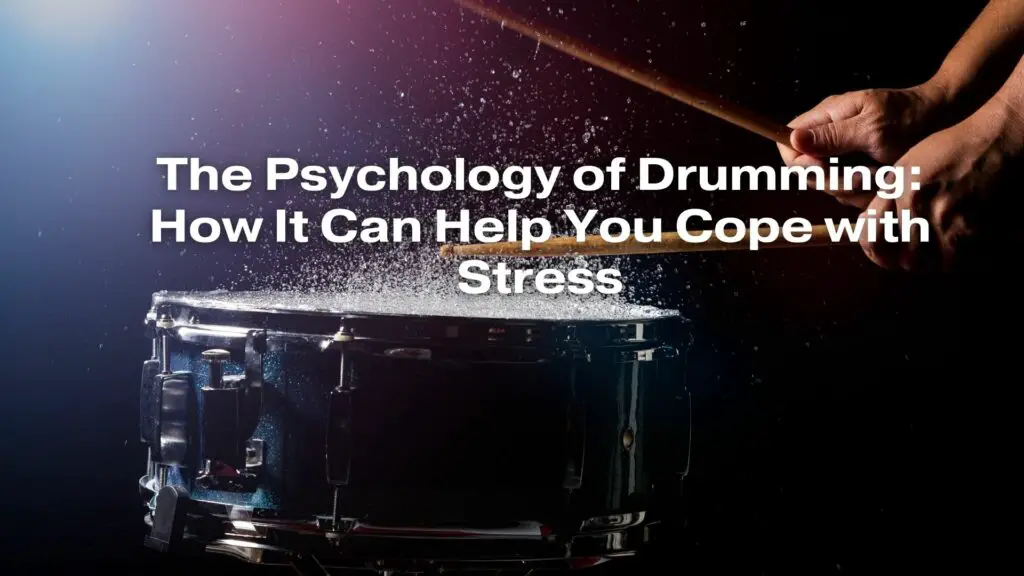Stress is an ever-present aspect of modern life, affecting individuals of all ages and backgrounds. Fortunately, the therapeutic and psychological benefits of drumming have been increasingly recognized as a powerful tool for stress management. In this article, we will explore the psychology of drumming and how it can be a valuable means to cope with stress and improve mental well-being.
1. Rhythmic Regulation:
Drumming involves creating and following rhythms. When we drum, our brain synchronizes with the beat. This rhythmic regulation can have a calming effect, helping to reduce anxiety and stress levels. Drumming provides a structured, predictable pattern in which individuals can find comfort and stability.
2. Emotional Expression:
Drumming provides a non-verbal outlet for emotional expression. It allows individuals to release pent-up feelings, whether they are stress, frustration, anger, or sadness. The act of hitting the drums can be a cathartic experience, helping to process and manage emotions.
3. Mindfulness and Flow State:
Drumming encourages mindfulness as it draws individuals into the present moment. The concentration required to maintain a steady beat and the engagement with the rhythmic patterns promote a state of flow – a mental state in which a person is fully immersed in an activity. This flow state can help individuals momentarily disconnect from stressors and experience a sense of calm and presence.
4. Physical Release of Tension:
Stress often manifests physically, leading to muscle tension and discomfort. Drumming is a physical activity that allows individuals to release this tension. Hitting the drums can be a way to work out physical stress, promoting relaxation and a sense of ease in the body.
5. Social Connection:
Drumming often takes place in social settings, such as drum circles or group classes. These communal experiences foster a sense of connection and belonging. Being part of a group that creates music together can alleviate feelings of isolation and promote a sense of unity.
6. Increased Self-Esteem:
Mastering the art of drumming and achieving a sense of competence in a new skill can boost self-esteem and self-confidence. These positive self-perceptions can act as a buffer against the negative impact of stress.
7. Dopamine Release:
Engaging in rhythmic activities, such as drumming, can trigger the release of dopamine, a neurotransmitter associated with pleasure and reward. This can create a positive and uplifting experience, countering the effects of stress and anxiety.
8. Coping Mechanism:
Drumming can serve as a healthy coping mechanism. It offers an alternative to less constructive ways of managing stress, such as substance use or avoidance. Drumming provides a productive and positive means of dealing with life’s challenges.
9. Creative Expression:
Drumming encourages creativity and self-expression. Exploring different rhythms, patterns, and improvisations can be a fulfilling and liberating experience, allowing individuals to connect with their inner selves and reduce stress.
In conclusion, the psychology of drumming reveals its therapeutic potential as a stress management tool. Whether through rhythmic regulation, emotional expression, mindfulness, or social connection, drumming can offer a holistic approach to coping with stress and improving mental well-being. It provides individuals with a unique and enjoyable way to reduce stress and find moments of peace and harmony in their lives.


